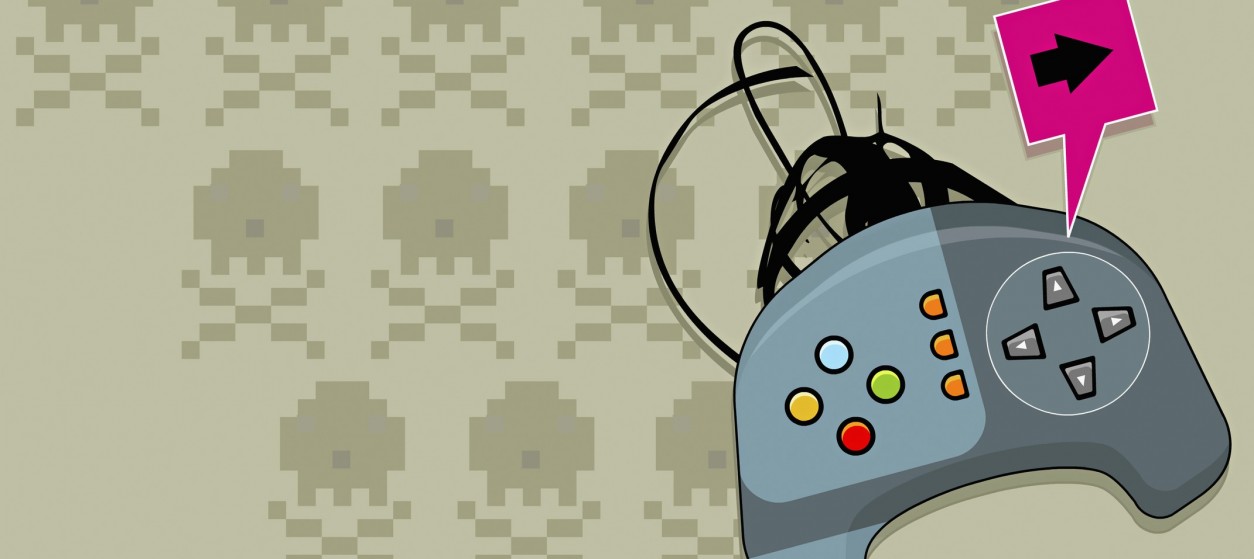For most people play is considered the opposite of work. Therefore, working while playing sounds like a contradiction. Nevertheless, in recent years many enterprises are integrating play activities as part of the work routine of their employees. In several cases these activities include serious games, which aim at training them in specific tasks and increasing their engagement in various work activities. In this context, companies are increasingly reexamining their stance against work and play, as well as against how these can be combined to elevate employee productivity. Recent studies demonstrate that there are many good reasons for injecting play activities in the workplace. At the same time, there is already a host of different games that companies can use to improve engagement and training of employees.
Serious Games in Corporate Environments: The Motivation
There is some proven motivation behind administering serious games to employees. The most prominent motives include:
- Positive impact on Employee Engagement: Nowadays, most corporate employees are extremely busy with a variety of tasks. Hence, it’s really hard to attract their attention and engage them in educational and training activities. Serious games can have a positive impact on their engagement in such tasks, especially when they exploit gamification narratives and interactivity features. As soon as a game includes real-life concepts in its narrative, employees become most likely to remember and master these concepts when they move from the playground to real-life conditions.
- Serious Games are a form of Practical Hands-On Training: Contrary to traditional face-to-face classroom-based teaching, serious games are much less theoretical and more practical. During play activities, employees have opportunities for “learning by doing”, along with the freedom to take decisions, control their response to situations and more. Likewise, employees assume the responsibilities of their successes and failures.
- Instant Feedback and Continuous Improvement: When playing serious games, employees are provided with instant feedback about whether some of their activities are right or wrong. Furthermore, they are able to see how their feedback compares to similar feedback provided to other players (e.g., their peers or managers). This feedback can be also exploited to help employees improve in the game and achieve better results, as part of a continuous improvement discipline. Such a continuous improvement practice can be then transferred and replicated to their real-life activities, as means of helping them avoiding making the same mistake, while also committing bad decisions in their long-term memory.
- Measurable Performance: Serious games provide their players with tangible Key Performance Indicators (KPIs) about their performance. Such metrics and KPIs are very useful as objective measures of an employee’s skills for a given task. Measurable indicators are also handy for developing targeting training programs, in areas where employees are weak. They are also important for quantifying improvements over time. Employees that improve their performance at work will most likely improve their scores in relevant games as well, and vice versa. Overall, capturing and processing KPIs associated with employee performance can greatly help in improving both employee skills and the contents of the serious game.
- Serious Games Encourage Team Spirit and Collaboration: Managers and human resources experts know about the importance of employees’ collaboration in enterprise environments. Successful projects are usually carried out by teams that collaborate effectively. Serious games are therefore very useful as they boost collaborative learning and a team spirit between their players. In this context, they also enable employees to sharpen their soft skills in relation to collaborative and social decision making, critical thinking, problem-solving, and team management.
- Avoiding Mistakes through Operating in a Safe Environment: Serious games include activities that are carried in real-life environments, which are however controlled and does not affect the actual operations. Specifically, serious games provide practical playgrounds for experimenting with specific tasks, without however disrupting production. This has the benefit of creating safe environments where new concepts, skills, decisions and move can be tested and evaluated, without jeopardizing corporate operations. Employees are therefore given the opportunity to test innovative concepts and practices, without worrying about possible mistakes and their impact on the business results of their corporation.
Prominent Game Types
Given the above listed benefits, many serious games vendors have recently produced play activities for training and educating of employees with different roles in a variety of enterprises and in various sectors of the economy. There are tens of games that are applicable in the corporate environment. Many of these games fall in the following categories:
- Time Management: These are games that simulate real situations where the players have to manage their time. Players are asked to create personal time management strategies that maximize their productivity. To this end, they are given the opportunities to plan and prioritize tasks. Scoring is based on the overall efficiency and performance of the user, following his/her time planning decisions.
- Making Successful Cold Calls: There are serious games that train employees on how to call others with persistence and confidence. Such games are usually interactive and involve two players that engage in pairs in cold call situations. The games come with timing constraints. Points are awarded when concluding a phone deal, but also when achieving intermediate steps like scheduling a follow-up call or obtaining contact details (e.g., e-mail) of the other party.
- Describing Objects and Products: In this case the interactive playing is focused on training employees on how to best describe a product, with particular emphasis on unveiling the product’s benefits. In principle these are games that boost the creativity of an employee (e.g., salesman) when describing a product. One of the main objectives is to avoid running out of ideas when performing the description. The script of these games involves many players that try to describe an object in different ways i.e. without repeating descriptions provided by earlier players. Players gain points for providing differentiated descriptions and lose when repeating what has been already said.
- Negotiation Games: These are usually role-playing games, where players try to negotiate a deal. The main roles are those of a merchant and a buyer. As part of the game, merchants strive to sell and buyers to achieve the best value for money. Scoring is based on the efficiency and the benefits of every concluded agreement, if and when there is one. Negotiation games are very good and popular training tools for sales teams.
The blending of play activities into every day work is a pleasant, yet very effective way to train employees and improve business results. Enterprises are gradually discovering the benefits and adopting serious games as part of their employee training and education programs. It’s certainly a new exciting opportunity that human resources and the top management of modern enterprises cannot afford to ignore.










